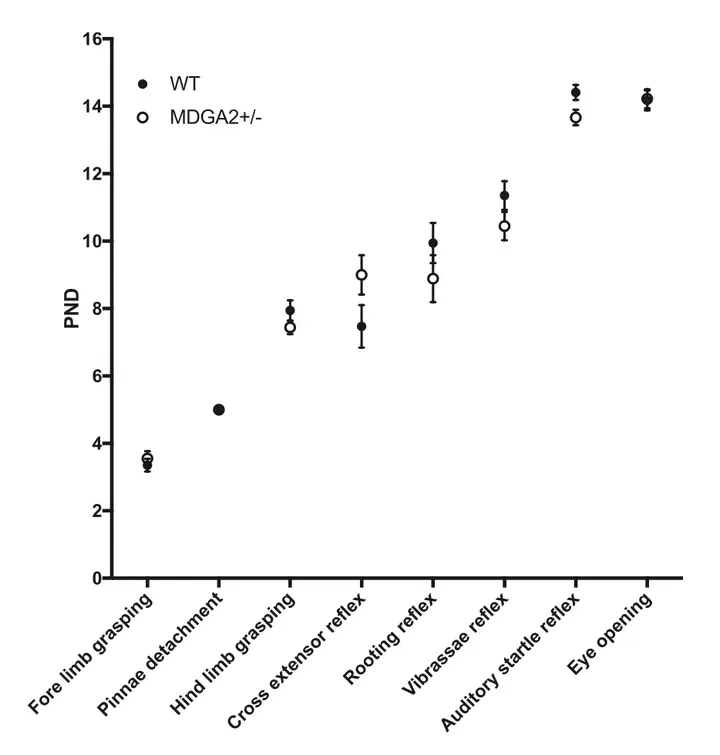
Abstract
Synaptic dysfunction underlies many neurodevelopmental disorders (NDDs). The membrane-associated mucin domain-containing glycosylphosphatidylinositol anchor proteins (MDGAs) regulate synaptic development by modulating neurexin–neuroligin complex formation. Since understanding the neurodevelopmental profile and the sex-based differences in the manifestation of the symptoms of NDDs is important for their early diagnosis, we tested a mouse model haploinsufficient for MDGA2 (MDGA2+/-) on a neurodevelopmental test battery, containing sensory, motor, and cognitive measures, as well as ultrasonic vocalizations. When male and female MDGA2+/- and wildtype (WT) C57BL/6~J mice were examined from 2 to 23 days of age using this test battery, genotype and sex differences in body weight, sensory-motor processes, and ultrasonic vocalizations were observed. The auditory startle reflex appeared earlier in the MDGA2+/- than in WT mice and the MDGA2+/- mice produced fewer ultrasonic vocalizations. The MDGA2+/- mice showed reduced locomotion and rearing than WT mice in the open field after 17 days of age and spent less time investigating a novel object than WT mice at 21 days of age. Female MDGA2+/- mice weighed less than WT females and showed lower grip strength, indicating a delay in sensory-motor development in MDGA2+/- mice, which appears to be more pronounced in females than males. The behavioural phenotypes resulting from MDGA2 haploinsufficiency suggests that it shows delayed development of motor behaviour, grip strength and exploratory behaviour, non-social phenotypes of NDDs.